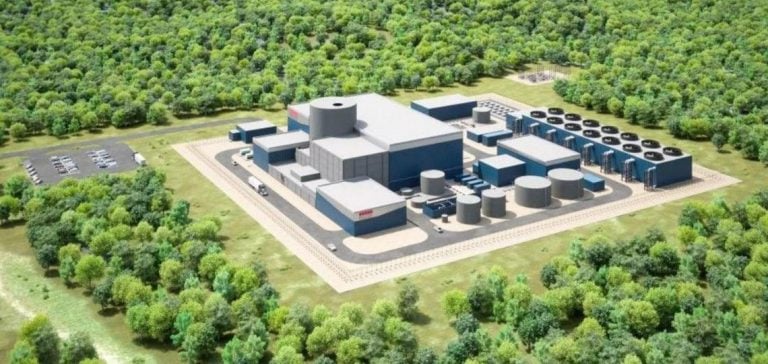Holtec International has chosen South Yorkshire as the location for its first Small Modular Reactor (SMR) plant in the UK.
This decision follows a rigorous selection process, during which several sites were evaluated for their industrial potential.
Among the finalists, South Yorkshire stood out for its infrastructure and its ability to support a local supply chain, in line with UK industrial objectives.
The project is in line with the UK’s ambitions to increase its production of decarbonized energy, while relying on innovative technologies such as SMR.
The plant, which will supply not only the UK market but also Europe and the Middle East, represents a strategic step forward for Holtec and for the country’s nuclear industry.
The UK is establishing itself as a major player in the development of SMRs, a technology designed to meet growing energy needs while optimizing the efficiency and safety of nuclear installations.
A plant serving strategic production
The Holtec project will rely on local production: 70% of the materials, components and services required will be sourced in the UK.
This strategy reinforces the integration of the UK nuclear industry, while ensuring significant economic spin-offs.
The new plant is expected to generate hundreds of skilled jobs, contributing to the economic dynamism of the South Yorkshire region.
The British energy sector is thus positioning itself as a key player in the development of the SMR sector in Europe.
Holtec’s ambition is to produce SMR-300 reactors, a model designed to generate around 300 MW of electricity per unit, and capable of delivering up to 1050 MW of thermal power for industrial applications.
This technology, which combines forced and gravity flows in its primary system, is designed to be more flexible and better adapted to the current needs of power grids and industry.
Partnerships with research centers
To ensure the success of its UK presence, Holtec has also forged partnerships with two major institutions: the Advanced Manufacturing Research Centre (AMRC) and the Manufacturing Technology Centre (MTC).
These research centers will play a key role in developing and validating the technologies needed to manufacture SMRs.
The AMRC, based at the University of Sheffield, will work with Holtec on industrial process optimization and skills training, to support the entire SMR value chain.
For its part, the Coventry-based MTC will focus on the development of reactor manufacturing processes.
These collaborations will enable Holtec to accelerate the start-up of SMR production while guaranteeing the quality of locally manufactured components.
The UK is thus becoming fertile ground for innovation in the nuclear technology sector.
The United Kingdom, a strategic hub for SMRs
The United Kingdom occupies a key position in Holtec’s development strategy.
Thanks to its network of industrial skills and research centers, the country offers a favorable environment for SMR production.
The growing demand for low-carbon energy in Europe and the Middle East places the UK at the heart of this energy transformation.
By 2050, Holtec plans to deploy around 5 GW of SMR power capacity in the UK.
The South Yorkshire project is part of a wider initiative supported by the UK government.
In December 2023, Holtec secured £30 million funding via the Future Nuclear Enabling Fund to progress its design appraisal process.
This financial support underlines the importance of SMRs in the UK’s energy strategy, which is counting on this technology to strengthen its energy security while meeting its decarbonization targets.
An ambitious schedule for SMR production
Holtec plans to submit a building permit application for two SMR-300 units at its Palisades, Michigan site by 2026.
This American project will serve as a model for future SMR deployment in the UK.
The first units should be operational from 2030, subject to regulatory approvals.
This timetable is in line with the UK government’s objective of making the country a world leader in SMR by 2030.
At the same time, Holtec continues to develop its international order book, which will strengthen the South Yorkshire plant’s role in supplying fast-growing markets.
With this new plant, the UK becomes a key player in the global SMR production chain, offering considerable prospects for economic and industrial growth.





















